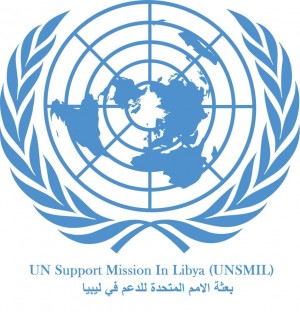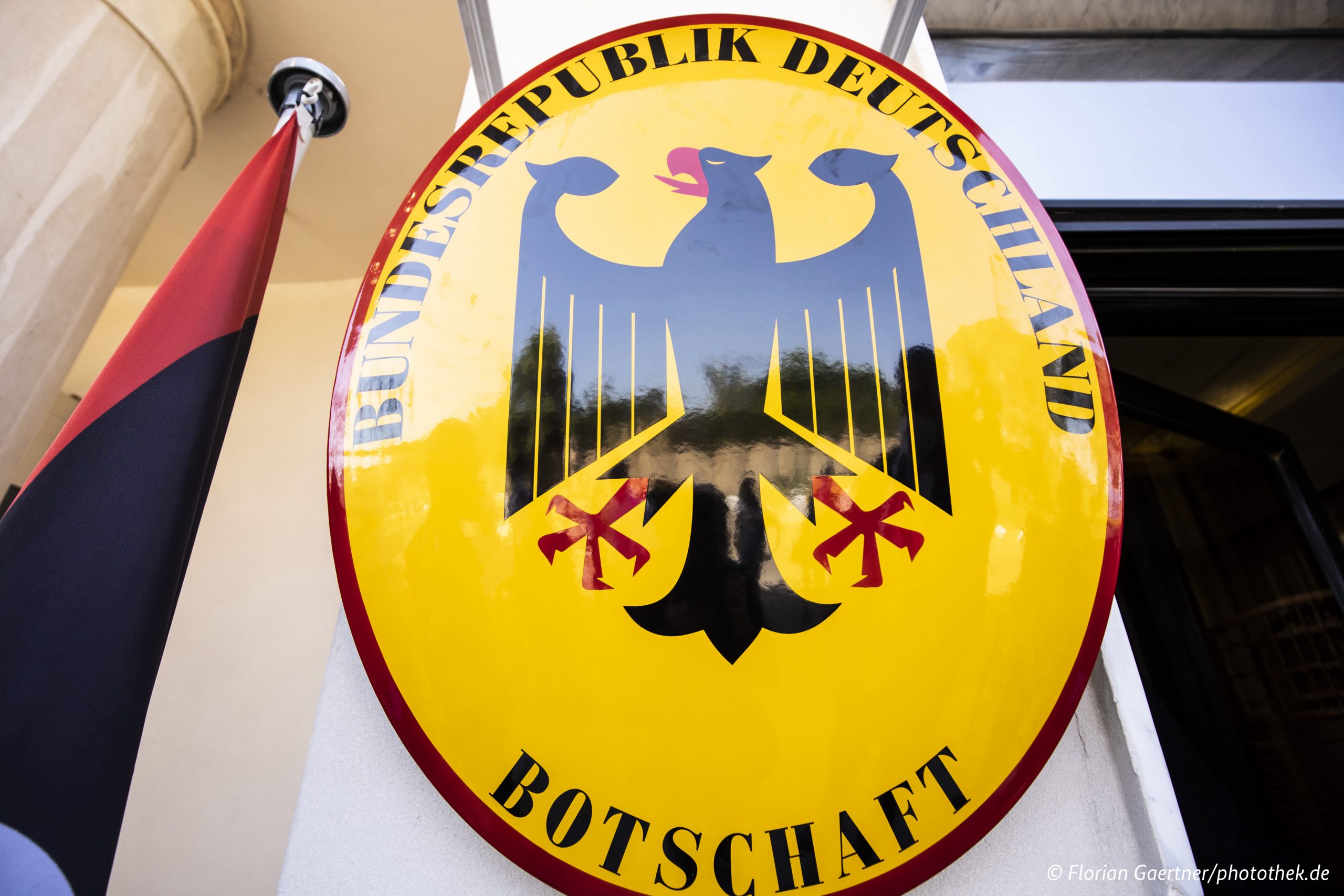By Sami Zaptia.
London, 7 January 2020:
Keep your hands off Libya and get out of the Libyan nightmare, Ghassan Salame, Special Representative of the Secretary-General and Head of the United Nations Support Mission in Libya (UNSMIL) told media on the latest situation in Libya. He was referring to foreign interference in the country’s civil war.
Salame was speaking as part of what the UN described as ‘‘informal comments’’ made to the media at the Security Council yesterday.
Salame said that the cadets killed in the Libyan military academy in Tripoli were ”unarmed, entirely unarmed” and were hit ”by a drone attack that is probably done by a country supporting the LNA”.
he also added that ”dozens of health facilities attacked by drones and by ‘fixed-wings aircrafts.’’
Asked about any hope of a political process, he said ”I hope that in the next two weeks I will be able to launch the second track concerning military and security issues that is ceasefire; arms embargo, DDR process, terrorism and counterterrorism and these kind of issues and I am hopeful that before the end of this month we would be able to launch the political dialogue, probably in Geneva in the Palais de Nation before the end of the month.”
Here are his full comments:
‘‘I was honoured to be able to have a frank and detailed discussions with the members of the security council in the past 2 hours. Before that I was honoured to have a long working session with the secretary-general.
You know that the situation in Libya is particularly difficult at that time. I can give you many examples of the difficulties we are facing. I would give you the example of what happened on Saturday evening when dozens of cadets have been killed in the military academy unarmed, entirely unarmed, by a drone attack that is probably done by a country supporting the LNA. I could tell you more about what is happening today in the city of Sirt where some fighting took place and some areas have (been) taken by the LNA.
I could also tell you about the humanitarian situation because it is basically the Libyans who are paying the dearest price for what is happening with new thousands of IDPs [every day] with dozens of schools closed because of the fighting; dozens of health facilities attacked by drones and by ‘fixed-wings aircrafts.’
I would like also to insist on the great courage of my colleagues in UNSMIL, trying to help at the same time at the humanitarian level, at the political level and at the economic level. The situation is bleak right now, I am the first to confess it, but let me also emphasize our determination as UN to try to find a way out of this bleak situation.
You certainly know that we have decided at the beginning of this year to launch three tracks involving the two sides of the war, economic, military and security and a political dialogue track. I am happy to inform you that we started today with the economic and financial track, with a meeting representing all parties in Tunis for the first time.
I hope that in the next two weeks I will be able to launch the second track concerning military and security issues that is ceasefire; arms embargo, DDR process, terrorism and counterterrorism and these kind of issues and I am hopeful that before the end of this month we would be able to launch the political dialogue, probably in Geneva in the Palais de Nation before the end of the month.
In the meanwhile, I hope that the Berlin process takes place and give an international push, an international umbrella to what the UNSMIL is trying to do on the ground and this is what I informed the Security Council about today.
Question: You just mentioned that the drone attack on the military academy was probably done by a country supporting the LNA, do you have any evidence that could indicate specifically which country?
Salame: No, we know it is a country supporting the LNA but there is more than one country supporting the LNA.
Question: What is your message to all these countries, we’ve seen Turkey now sending in support for the government, what is your message [to all these countries]?
Salame: Keep your hands off Libya. The country is suffering too much from foreign interference in different ways; in arms being sold to Libyans; in arms given to Libyans, in direct foreign military action in Libya; in looking for permanent bases in Libya. All these kinds of direct intervention are making things extremely difficult. What I ask the Security Council, what I ask all these countries is very clear, keep out of Libya. There is enough weapons in Libya, they don’t need extra weapons. There are enough mercenaries in Libya, so stop sending mercenaries as is the case right now, with hundreds or thousands right now coming into the country of late.
So yes, stop all kinds of foreign interference and I will go back to the principle, there is a resolution calling for arms embargo in Libya, those who voted on this resolution are necessarily in need to implement it. If everybody violates the arms embargo it is a problem, but if those who adopted the arms embargo are violating it, it is an even bigger problem.
Question: You expressed hope that a conference in Berlin would happen, what is holding it up and do you believe that at least General Haftar still thinks that he can achieve a military victory.
Salame: Berlin conference needs to be defined in what it is exactly. On the 29th of July, I came before the Security Council and asked for some kind of international conference, to give a blessing, to give support, to show that the international community is united in our efforts to bring the Libyans together. That is what we need from Berlin, Berlin [Process] is not going to decide the future of Libya.
This we decide in Libya itself that’s why we started three tracks, which are exclusively inter-Libyan, economic and financial, security and military and a political track. These three tracks are going to be launched now, in fact we started with the first one today, not waiting for the international conference to take place in Berlin. We hope that the international conference comes and blesses, supports and endorses these efforts that we are doing on the ground, but we started these efforts without waiting for Berlin to take place. We hope it takes place, because it gives an international momentum to these efforts on the ground. Yes, there are people who believe that there is a military solution.
I want to be clear here, there is no military solution possible in Libya. I know it is a UN cliché, but in this case it is not a UN cliché, because if you look at the composition of forces on both sides, you will discover that there are a lot of mercenaries, in addition, the country is huge and to capture and to control that country, I don’t see any party able to do that, that is way it is not a cliché but rather a realistic assessment that there can be no military solution in Libya and the Libyans should come together and stop this “prima donna behavior” and accept mutual concessions to divide power, which is the basic part of a political settlement.
Question: Do you differentiate between how military help is arriving because the government in Tripoli is asking, or for you it doesn’t matter whether it was mercenaries or if it is a state helping, everybody should keep out of Libya at this moment?
Salame: I think there is no interest to have more foreign interference in Libya. I know that many countries have been supporting Haftar. I don’t want to single out the memoranda of understanding between the GNA and Turkey as something absolutely different. I think the intervention is there, when I went to Libya in summer 2017, already thousands of mercenaries were there. The country has more than … so you don’t need more mercenaries, you don’t need more weapons, that is why we are calling on all countries to stop interference. I do differentiate between what is happening in the East and what is happening in the West. Get out of the Libyan nightmare, that is what I am asking all the countries. Remain outside this situation because there is no military solution. The more we give hopes to this side or to that side, the more you render the political situation extremely different. So better to avoid escalating and internationalizing this conflict.
Question: do you have any idea when the Berlin conference would be held?
Salame: I hope it is held as soon as possible, because work has been done during the fall, in five different meetings, by the way in which Russia participated very actively, and the two basic documents that are to be adopted by the heads of states are to a very large extent ready since our last meeting on the 10th of December, so the soonest the best. But you know that this depends on the schedules of the heads of states and other things, but the soonest it happens the better. I hope it happens in the next few weeks and if possibly before the end of January.
But again, I am not waiting for Berlin to happen to start working. The three tracks on the ground where the Libyans should decide their future, have started today with the economic and financial track and will start with the security and military track as soon as possible. Berlin is there to give it a push, to give it a boost, but I hope it takes place as soon as possible.
Question: What did you ask the Security Council to prevent that this actually will happen, that countries like Turkey or other countries they already doing, they will interfere in the process. Do you think that the Security Council can prevent that, or it is just the fact that just because the Tripoli government asked for help that makes it legal?
Salame: I leave it to others to decide the legality of things, what is clear for me is that the Security Council has met 14 times on Libya since the 4th of April and did not produce a resolution on a ceasefire. I care about the Libyans, and they are asking “where is the international community? Where is the international community that said in 2011 it will protect the civilians?” Now civilians are attacked, dozens of schools are attacked, dozens of health facilities are attacked. People are leaving their homes, 14,000 registered civilians and more than 30.0000 unregistered have left their home. What do I tell them? That the international community doesn’t care, is unable to produce a UN resolution calling for a ceasefire? That is the heart of the matter.
The international system is fractured enough on Libya and other issues, but I do believe that Libya can be a place where this fracturing of the international system can be contained, because it is a rich country and can satisfy a lot of international interest if it is prosperous and stable and not at war. Therefore, I call upon the Security Council not to lose a moment and that my brief to the Security Council, which is the 15th since the 4th of April, leads to a decision that enough is enough, that the Libyans have suffered enough.
I am really angry to see that everybody wants to talk about Libya and very few people want to talk about the Libyans. What happens to the Libyans? What happens to millions of migrant workers in Libya? What don’t we ask about them?
Libya is not only an oil story, Libya is not only a gas story, Libya is not only a geopolitical story, it is also a human story and people are suffering and for no other reason but for the fact that there is not international clear message that enough is enough.
My feeling is that if we leave it alone, it will also impact neighbouring countries and I think we should care about the stability of other countries, very fragile countries. To the East, to the South and to the West and there is some kind of “laziness” in recognizing the gravity of the Libyan situation. I have been saying this for a long while, but in light of what is happening in the past three weeks, with calls for Jihad, with agreements with other countries to provide weapons, with attacks against Sirte today while I am taking to you, the things are becoming much more serious. I hope that this aggravation of the situation opens our eyes to the fact that it is detrimental to six or seven million Libyans but also to the neighbouring countries and to peace and security in the Mediterranean.
Question: are there any particular members of the Security Council that you will be willing to identify that have been most opposed to the a ceasefire resolution and have prevented it or are you saying it is just a lack of consensus by many of the members on how to draft an implement the ceasefire?
Salame: I have named names.”









